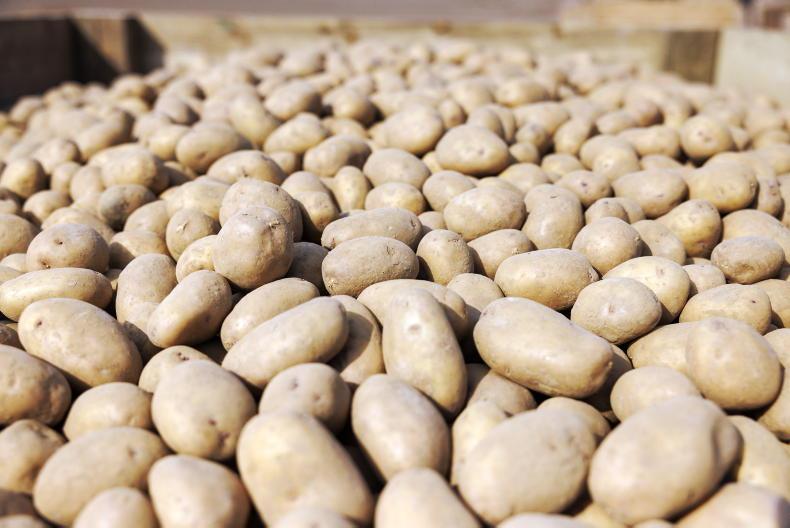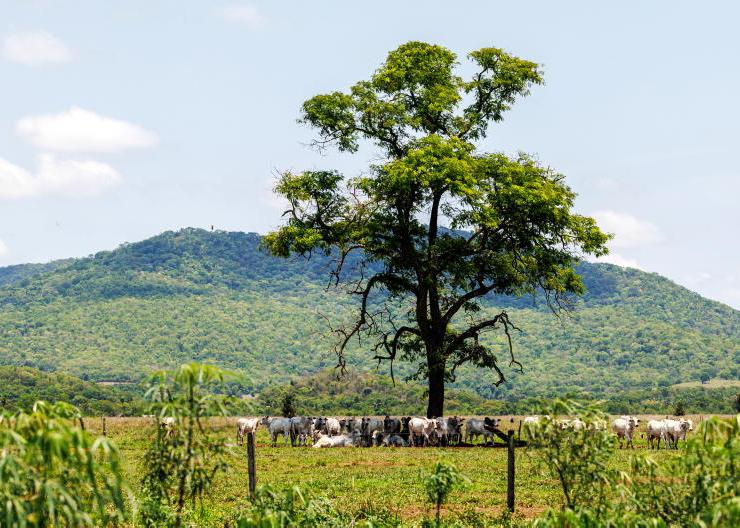As everyone knows, farming carries inherent risks, one of which is back injuries.
In this article, we look at the prevalence and the impact of back injuries among farmers.
We highlight some of the key risk factors and provide practical advice on how to avoid injuries and what you should do if you get a back injury.
Prevalence of back injuries among farmers
Back injuries are one of the most common health conditions that require treatment in the world and are particularly prevalent in the agriculture sector, given the nature of the work. The number and range of manual handling activities on any farm is vast, ranging from fertiliser handling to lifting loads, some of them livestock.
Ireland is no different. According to recent research1, there are around 2,800 serious injuries annually on Irish farms, many of which are life changing and place the farmers’ livelihood and farm at risk.
In 2021, there were over 4,5002 farm accidents, of which one third related to trips and falls. Research undertaken by the Health and Safety Authority in Ireland indicated that musculoskeletal injuries (injuries to the muscles, bones, tendons and ligaments) are widespread among Irish farmers, with injuries to the back being the most common.
In a survey of 600 Irish farmers, 56% reported experiencing a musculoskeletal injury, with 37% of these injuries relating to the back3.
The back is made up of the spine, muscles, tendons and ligaments. Muscle injuries are usually caused by over-use and stress, which can cause the muscles to contract and spasm. This can be very painful.
Tendon injuries are typically caused by repeated actions that, over time, cause the tendon to become inflamed and painful. Spinal injuries often involve the cushioning discs between the bones (vertebrae). They can range from slipped and herniated discs, to trapped nerves and sciatica. Pain can be severe and, depending on the injury, can travel to other parts of your body.
These back injuries are commonly due to normal farming activities such as handling livestock, lifting heavy items, carrying heavy loads or using awkward postures when carrying loads, repeated actions and even from long hours spent operating machinery. Once a back injury has happened, care needs to be taken to prevent further injury.
Health and financial impact of back injuries on farmers
The consequences of back problems for farmers can be serious. In the short and medium term, they can prevent you from milking the cows or getting in the harvest.
In the long term, the consequences can be life-changing. Persistent chronic pain, problems with mobility and long-term disability can together both affect quality of life and prevent you from carrying out essential farming tasks in the future.
This directly leads to decreased productivity, higher costs due to the need to hire farm help and an increased strain on finances. The cumulative impact can be devastating, both physically and mentally, as you contend with deteriorating health and financial uncertainty.
Risk factors for back injuries
Farms are inherently physically demanding workplaces, involving manual handling tasks that can result in back injuries. Heavy lifting, especially when lifting objects that are too heavy for that person, is one of the main risk factors.
If a load is bulky or difficult to hold, as with a restless sheep or calf, you may have to adopt an awkward posture, which is not only tiring, but also increases the risk of injury.
Repetitive actions, particularly those that are done over a long period of time, like throwing bags of feed onto a trailer; working in awkward positions in tight spaces in barns and byres; and carrying out activities without the right equipment can put further strain the back, and as farmers are always on the go, lack of recovery time greatly increases the likelihood of injury.
Other risk factors include carrying loads for excessive distances (over 10 metres), lifting loads above shoulder height, lifting loads with no handles, and lifting loads in an area that is difficult to access, whether because the ground or flooring is uneven or slippery, there are trip hazards or the space is awkward and tight.
Avoiding back injuries
There are many things that you can do to reduce the physical strain you are under while farming. Planning ahead and taking steps to reduce the risk of injury should make the job easier and less strenuous, as well as safer.
Reduce lifting: according to the UK Health and Safety Executive, having one person handle a load weight of 50kg represents a serious risk of injury and should be avoided at all times. Whenever possible, break down heavy loads into smaller ones. Lift consciously: if you have to lift something manually, keep your feet flat on the floor, bend your knees and keep your back straight, keep the weight as close to the centre of gravity as possible and turn your feet, not your back, in the direction you want to go in. Look after your body: tense muscles injure more easily. Stretch regularly. Eat well to provide muscles with the nutrients they need. Do core-strengthening exercises - strong abs relieve stress on the back. Most importantly, take care of injuries when they happen. Use available tools: a wide range of handling aids, such as loaders, jacks, transport boxes and pallet forks, is available for tractors. Hoists, wheelbarrows and carts can also reduce the need to manually lift or carry heavy loads.Organise storage units so that materials are easy to access without the need for lifting or carrying. Be conscious of your work environment. Ensure the area is well lit and free from clutter and potential trip hazards, and clear or grit slippery surfaces. Be aware of your vehicle. Keep tyres properly inflated, reduce vehicle speed over rough ground, ensure your vehicle's suspension system is maintained and take care when using an ATV. Accidents with these vehicles are common and from November this year, new legislation will require the users of work-related ATVs, including farmers, to undergo mandatory training and to wear appropriate personal protective equipment (PPE).Alternate jobs and take breaks from repetitive activities. This helps reduce tiredness and allows you body time to recover. Wear appropriate protective gear. Back support belts are available to help support your back, providing additional stability and reducing strain during physically demanding tasks.Use three points of contact - two feet and one hand, or two hands and one foot - when mounting or dismounting from a combine and come down the ladder backwards, rather than coming down forward and jumping on to the ground, especially if it's an uneven area.
When you have a back injury
Where a back injury has occurred, taking enough time to rest to allow the body to heal and recover is essential. Ice packs and heat packs can bring down inflammation and reduce pain, and over-the-counter anti-inflammatories will also help. Seeing a physiotherapist may also help. Physiotherapists can assess the damage and provide exercises to help with muscular and tendon-related injuries.
If pain is persistent, severe, causes weakness, tingling or numbness or extends to other parts of the body such as your buttocks and legs, it is essential to see your GP as quickly as possible, so that the cause can be identified and treated and further damage avoided. Any injuries to the spine can cause long-lasting damage and you may need to be referred to a spine specialist.
Conclusion
Back injuries are often considered a normal risk in the life of a farmer, but the implications of ignoring this risk can be catastrophic. Even small injuries and minor back pain can mean time away from the farm while your body heals.
There are several measures you can take and tools you can use to mitigate these risks and reduce your chance of incurring an injury. Where a back injury occurs, it is essential to take the time to rest and recover to prevent further damage and, if the pain is persistent, severe, causes weakness or tingling or extends beyond the injury site, see your GP.
Brought to you by Spine Care, Mater Private Network – offering expert spine care services in Dublin, Cork, Limerick and Kilkenny.
We treat more spine and back problems than any other private healthcare group in Ireland. Our dedicated team is here for you every step of the way. Together, we work to restore our patients’ spine health.
Visit Mater Private Network website for further information - https://www.materprivate.ie/our-services/spinal-care

1 gov.ie - Farm Safety (www.gov.ie)
2 2022 - Over 4,500 Farm Accidents occur annually - Teagasc survey - Teagasc | Agriculture and Food Development Authority
3 Health and Safety Authority ‘Reducing the Risk of Back Injuries on the Farm’
As everyone knows, farming carries inherent risks, one of which is back injuries.
In this article, we look at the prevalence and the impact of back injuries among farmers.
We highlight some of the key risk factors and provide practical advice on how to avoid injuries and what you should do if you get a back injury.
Prevalence of back injuries among farmers
Back injuries are one of the most common health conditions that require treatment in the world and are particularly prevalent in the agriculture sector, given the nature of the work. The number and range of manual handling activities on any farm is vast, ranging from fertiliser handling to lifting loads, some of them livestock.
Ireland is no different. According to recent research1, there are around 2,800 serious injuries annually on Irish farms, many of which are life changing and place the farmers’ livelihood and farm at risk.
In 2021, there were over 4,5002 farm accidents, of which one third related to trips and falls. Research undertaken by the Health and Safety Authority in Ireland indicated that musculoskeletal injuries (injuries to the muscles, bones, tendons and ligaments) are widespread among Irish farmers, with injuries to the back being the most common.
In a survey of 600 Irish farmers, 56% reported experiencing a musculoskeletal injury, with 37% of these injuries relating to the back3.
The back is made up of the spine, muscles, tendons and ligaments. Muscle injuries are usually caused by over-use and stress, which can cause the muscles to contract and spasm. This can be very painful.
Tendon injuries are typically caused by repeated actions that, over time, cause the tendon to become inflamed and painful. Spinal injuries often involve the cushioning discs between the bones (vertebrae). They can range from slipped and herniated discs, to trapped nerves and sciatica. Pain can be severe and, depending on the injury, can travel to other parts of your body.
These back injuries are commonly due to normal farming activities such as handling livestock, lifting heavy items, carrying heavy loads or using awkward postures when carrying loads, repeated actions and even from long hours spent operating machinery. Once a back injury has happened, care needs to be taken to prevent further injury.
Health and financial impact of back injuries on farmers
The consequences of back problems for farmers can be serious. In the short and medium term, they can prevent you from milking the cows or getting in the harvest.
In the long term, the consequences can be life-changing. Persistent chronic pain, problems with mobility and long-term disability can together both affect quality of life and prevent you from carrying out essential farming tasks in the future.
This directly leads to decreased productivity, higher costs due to the need to hire farm help and an increased strain on finances. The cumulative impact can be devastating, both physically and mentally, as you contend with deteriorating health and financial uncertainty.
Risk factors for back injuries
Farms are inherently physically demanding workplaces, involving manual handling tasks that can result in back injuries. Heavy lifting, especially when lifting objects that are too heavy for that person, is one of the main risk factors.
If a load is bulky or difficult to hold, as with a restless sheep or calf, you may have to adopt an awkward posture, which is not only tiring, but also increases the risk of injury.
Repetitive actions, particularly those that are done over a long period of time, like throwing bags of feed onto a trailer; working in awkward positions in tight spaces in barns and byres; and carrying out activities without the right equipment can put further strain the back, and as farmers are always on the go, lack of recovery time greatly increases the likelihood of injury.
Other risk factors include carrying loads for excessive distances (over 10 metres), lifting loads above shoulder height, lifting loads with no handles, and lifting loads in an area that is difficult to access, whether because the ground or flooring is uneven or slippery, there are trip hazards or the space is awkward and tight.
Avoiding back injuries
There are many things that you can do to reduce the physical strain you are under while farming. Planning ahead and taking steps to reduce the risk of injury should make the job easier and less strenuous, as well as safer.
Reduce lifting: according to the UK Health and Safety Executive, having one person handle a load weight of 50kg represents a serious risk of injury and should be avoided at all times. Whenever possible, break down heavy loads into smaller ones. Lift consciously: if you have to lift something manually, keep your feet flat on the floor, bend your knees and keep your back straight, keep the weight as close to the centre of gravity as possible and turn your feet, not your back, in the direction you want to go in. Look after your body: tense muscles injure more easily. Stretch regularly. Eat well to provide muscles with the nutrients they need. Do core-strengthening exercises - strong abs relieve stress on the back. Most importantly, take care of injuries when they happen. Use available tools: a wide range of handling aids, such as loaders, jacks, transport boxes and pallet forks, is available for tractors. Hoists, wheelbarrows and carts can also reduce the need to manually lift or carry heavy loads.Organise storage units so that materials are easy to access without the need for lifting or carrying. Be conscious of your work environment. Ensure the area is well lit and free from clutter and potential trip hazards, and clear or grit slippery surfaces. Be aware of your vehicle. Keep tyres properly inflated, reduce vehicle speed over rough ground, ensure your vehicle's suspension system is maintained and take care when using an ATV. Accidents with these vehicles are common and from November this year, new legislation will require the users of work-related ATVs, including farmers, to undergo mandatory training and to wear appropriate personal protective equipment (PPE).Alternate jobs and take breaks from repetitive activities. This helps reduce tiredness and allows you body time to recover. Wear appropriate protective gear. Back support belts are available to help support your back, providing additional stability and reducing strain during physically demanding tasks.Use three points of contact - two feet and one hand, or two hands and one foot - when mounting or dismounting from a combine and come down the ladder backwards, rather than coming down forward and jumping on to the ground, especially if it's an uneven area.
When you have a back injury
Where a back injury has occurred, taking enough time to rest to allow the body to heal and recover is essential. Ice packs and heat packs can bring down inflammation and reduce pain, and over-the-counter anti-inflammatories will also help. Seeing a physiotherapist may also help. Physiotherapists can assess the damage and provide exercises to help with muscular and tendon-related injuries.
If pain is persistent, severe, causes weakness, tingling or numbness or extends to other parts of the body such as your buttocks and legs, it is essential to see your GP as quickly as possible, so that the cause can be identified and treated and further damage avoided. Any injuries to the spine can cause long-lasting damage and you may need to be referred to a spine specialist.
Conclusion
Back injuries are often considered a normal risk in the life of a farmer, but the implications of ignoring this risk can be catastrophic. Even small injuries and minor back pain can mean time away from the farm while your body heals.
There are several measures you can take and tools you can use to mitigate these risks and reduce your chance of incurring an injury. Where a back injury occurs, it is essential to take the time to rest and recover to prevent further damage and, if the pain is persistent, severe, causes weakness or tingling or extends beyond the injury site, see your GP.
Brought to you by Spine Care, Mater Private Network – offering expert spine care services in Dublin, Cork, Limerick and Kilkenny.
We treat more spine and back problems than any other private healthcare group in Ireland. Our dedicated team is here for you every step of the way. Together, we work to restore our patients’ spine health.
Visit Mater Private Network website for further information - https://www.materprivate.ie/our-services/spinal-care

1 gov.ie - Farm Safety (www.gov.ie)
2 2022 - Over 4,500 Farm Accidents occur annually - Teagasc survey - Teagasc | Agriculture and Food Development Authority
3 Health and Safety Authority ‘Reducing the Risk of Back Injuries on the Farm’










SHARING OPTIONS